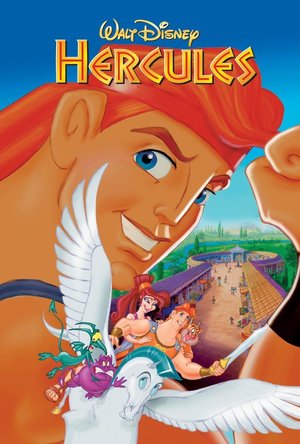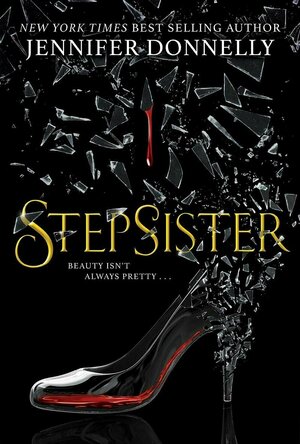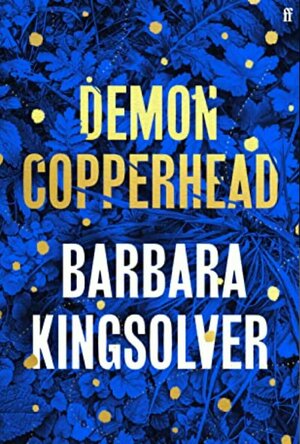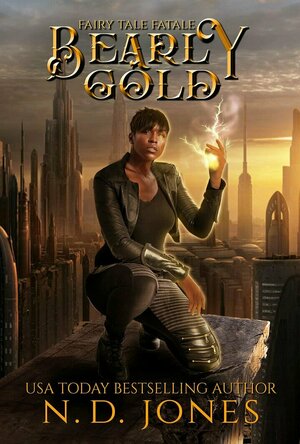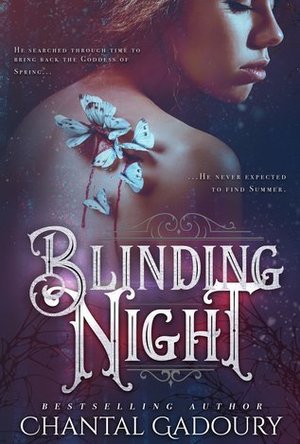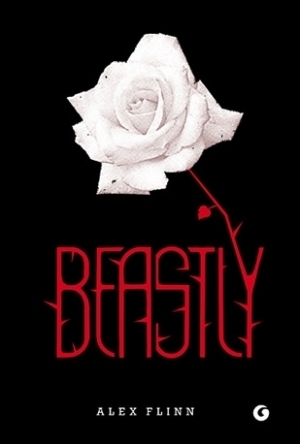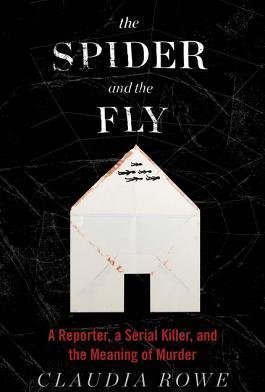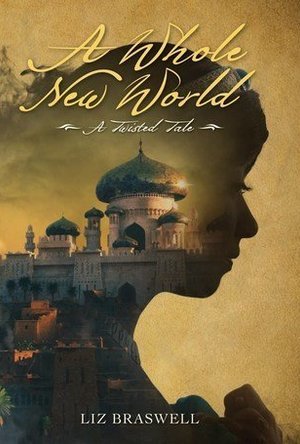Search
Phillip McSween (751 KP) rated Hercules (1997) in Movies
Sep 5, 2020
Great Combo of Action and Hilarity
Disney’s animated retelling of the classic story of the Greek demi-god. The fun spin that was put on it just happens to make it my favorite. You can’t help but have a good time while watching Disney’s Hercules.
Acting: 10
Beginning: 10
Characters: 10
Cinematography/Visuals: 10
Hercules is beautiful from a visual standpoint. I love the contrast of bright colors against dark backgrounds. My favorite scene is when Hercules is battling the hydra in the rain while flying on his pegasus. It’s so grand in scale as he soars in and out of the dozens of heads. Oh, and I haven’t even touched on the beauty of Hades. It’s gorgeous even in its weird creepiness. So much attention to detail that it’s hard not to appreciate.
Conflict: 9
Entertainment Value: 9
From the opening scene where the awesome divas are singing the setup, I knew I was going to be watching something original and new. With a combo of action-packed sequences and a number of hilarious moments from a great cast, I was invested in the movie from beginning to end. It’s a damn good ride.
Memorability: 8
Pace: 10
Hercules moves extremely efficiently through its story which I find some stories hard to do when singing is involved. There is very little lingering if any as scenes get their point across and you’re off to the next thing. I respect films that can do that as I know a number of movies that overstay their welcome.
Plot: 8
Resolution: 8
Overall: 92
Not only does it have action and comedy, but there is also a love story in true Disney fashion within Hercules. And it all works. I do wish that they would have jumped into Hercules’ hero aspect a smidge earlier, but overall I think the movie is fantastic. Great job yet again by Disney.
Acting: 10
Beginning: 10
Characters: 10
Cinematography/Visuals: 10
Hercules is beautiful from a visual standpoint. I love the contrast of bright colors against dark backgrounds. My favorite scene is when Hercules is battling the hydra in the rain while flying on his pegasus. It’s so grand in scale as he soars in and out of the dozens of heads. Oh, and I haven’t even touched on the beauty of Hades. It’s gorgeous even in its weird creepiness. So much attention to detail that it’s hard not to appreciate.
Conflict: 9
Entertainment Value: 9
From the opening scene where the awesome divas are singing the setup, I knew I was going to be watching something original and new. With a combo of action-packed sequences and a number of hilarious moments from a great cast, I was invested in the movie from beginning to end. It’s a damn good ride.
Memorability: 8
Pace: 10
Hercules moves extremely efficiently through its story which I find some stories hard to do when singing is involved. There is very little lingering if any as scenes get their point across and you’re off to the next thing. I respect films that can do that as I know a number of movies that overstay their welcome.
Plot: 8
Resolution: 8
Overall: 92
Not only does it have action and comedy, but there is also a love story in true Disney fashion within Hercules. And it all works. I do wish that they would have jumped into Hercules’ hero aspect a smidge earlier, but overall I think the movie is fantastic. Great job yet again by Disney.
ClareR (6101 KP) rated Stepsister in Books
Sep 29, 2020
The story, with a feminist slant, of the ugly sisters that Cinderella left behind.
I do like a good fairytale, and I seem to be enjoying fairytale retellings quite a bit when I come across them. Stepsister is a great example of a retelling - told from the other side.
Isabelle and Tavi are the ugly sisters, left behind with their unhinged mother, after Cinderella has left with her Prince. The ‘ugly’ sisters actions aren’t excused, in fact they are left to live and struggle with the consequences of their actions. Isabelle has a permanent limp where she sliced off her toes in the hope that she would be able to fit in to the glass slipper. All on the instructions of her mother. Isabelle is a strong character who feels hemmed in by her mother and the restrictions that society has thrust upon her. Her worth is dictated by her looks - something which she falls short on, as does her sister. Instead of the soft mannered, beautiful, obedient girls that society wants, the sisters are clever, resourceful and regrettably ugly. Maman tries to marry them off to the Prince in any way that she can - even making them mutilate themselves. When Cinderella leaves to marry her Prince and the locals discover how she was treated, Isabelle, Tavi and Maman are both ostracised and vilified. Isabelle truly regrets the way that she treated Cinderella, but doesn’t know how she can put right what she did. However, both Fate and Chance have now got an influence over her life, a vested interest, and they have opposing opinions on how Isabelle’s life should play out.
I thought this feminist slant on the after-story of Cinderella was really engaging. I loved it, and if I had a daughter I’d be passing it on to her to read next!
Many thanks to Readers First for my copy of this book.
Isabelle and Tavi are the ugly sisters, left behind with their unhinged mother, after Cinderella has left with her Prince. The ‘ugly’ sisters actions aren’t excused, in fact they are left to live and struggle with the consequences of their actions. Isabelle has a permanent limp where she sliced off her toes in the hope that she would be able to fit in to the glass slipper. All on the instructions of her mother. Isabelle is a strong character who feels hemmed in by her mother and the restrictions that society has thrust upon her. Her worth is dictated by her looks - something which she falls short on, as does her sister. Instead of the soft mannered, beautiful, obedient girls that society wants, the sisters are clever, resourceful and regrettably ugly. Maman tries to marry them off to the Prince in any way that she can - even making them mutilate themselves. When Cinderella leaves to marry her Prince and the locals discover how she was treated, Isabelle, Tavi and Maman are both ostracised and vilified. Isabelle truly regrets the way that she treated Cinderella, but doesn’t know how she can put right what she did. However, both Fate and Chance have now got an influence over her life, a vested interest, and they have opposing opinions on how Isabelle’s life should play out.
I thought this feminist slant on the after-story of Cinderella was really engaging. I loved it, and if I had a daughter I’d be passing it on to her to read next!
Many thanks to Readers First for my copy of this book.
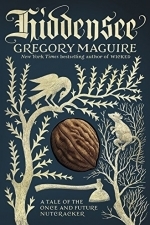
Hiddensee: A Tale of the Once and Future Nutcracker
Book
From the author of the beloved #1 New York Times bestseller Wicked, the magical story of a toymaker,...
Fantasy
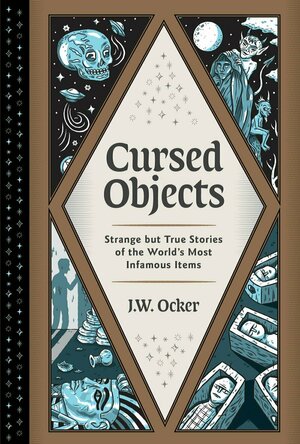
Cursed Objects: Strange but True Stories of the World's Most Infamous Items
Book
An illustrated compendium that reveals the true stories behind the most infamous, creepy, and...
ClareR (6101 KP) rated Demon Copperhead in Books
Jan 21, 2023
This will be one of my very favourite books of 2022, without a shadow of a doubt.
Demon Copperhead is a modern retelling of David Copperfield, which I first read years ago. It’s always stayed with me though (as Dickens books have a habit of doing). Demon Copperhead feels more personal though. It’s not because of the setting, I’ve never been to Appalachia, I’ve never seen a trailer park in the flesh, and I’m certainly lucky enough to have never experienced the opioid crisis that’s very much still ongoing in the US.
Demon is our David, born in a trailer to a mother with an addiction that she desperately tries to control. His father is dead before he’s born. His mother makes some questionable decisions: one is that she marries Stone, a controlling bully, and the reason that Demon is taken into care.
There are so many links to David Copperfield, and I’m glad that I’d read Dickens novel first. But it really isn’t necessary at all. This is a truly magnificent novel in its own right.
Demon’s desperation and depression leaps off the page: his desperate need for love and approval, and his eventual descent into addiction were so terribly sad to read. I felt I built a connection with Demon and wanted more for him than society was willing to give. He was given to foster parents who weren’t vetted and were unsuitable. No-one cared enough to help him, and by the time they did, he was past being able to accept their help - he just didn’t think he deserved it.
But there is ultimately hope. There is the chance for Demon to live a good life.
I adored this book. I’m a big Barbara Kingsolver fan anyway, but this just confirmed that for me.
I’m hoping that this book will point more people towards her books. They’re in for a treat!
Demon Copperhead is a modern retelling of David Copperfield, which I first read years ago. It’s always stayed with me though (as Dickens books have a habit of doing). Demon Copperhead feels more personal though. It’s not because of the setting, I’ve never been to Appalachia, I’ve never seen a trailer park in the flesh, and I’m certainly lucky enough to have never experienced the opioid crisis that’s very much still ongoing in the US.
Demon is our David, born in a trailer to a mother with an addiction that she desperately tries to control. His father is dead before he’s born. His mother makes some questionable decisions: one is that she marries Stone, a controlling bully, and the reason that Demon is taken into care.
There are so many links to David Copperfield, and I’m glad that I’d read Dickens novel first. But it really isn’t necessary at all. This is a truly magnificent novel in its own right.
Demon’s desperation and depression leaps off the page: his desperate need for love and approval, and his eventual descent into addiction were so terribly sad to read. I felt I built a connection with Demon and wanted more for him than society was willing to give. He was given to foster parents who weren’t vetted and were unsuitable. No-one cared enough to help him, and by the time they did, he was past being able to accept their help - he just didn’t think he deserved it.
But there is ultimately hope. There is the chance for Demon to live a good life.
I adored this book. I’m a big Barbara Kingsolver fan anyway, but this just confirmed that for me.
I’m hoping that this book will point more people towards her books. They’re in for a treat!
BEARLY GOLD is the second in the Fairy Tale Fatale series and is a very imaginative retelling of Goldilocks and the Three Bears.
'Goldilocks' is a young, incredibly brave girl who has seen and suffered more than any should do. Our main character, Fayola, is a lightning bird of legend, an impundulu. She is on her fortieth mission, after which she will be free to do what she wants with her life. But that fortieth mission brings untold action and the saving of children from a war-torn area. Initially, she doesn't want to. She wants to finish her mission and go home. But how can she leave them?
Featuring bear and elephant shifters, plus impundulu, as well as humans, this is an intricate and twisting story, telling the dark tale of child trafficking. It is lightened in places by Fay's musings, her friends and family, plus romantic elements with Jelani - her long-term partner. It is also violent in places but, I can honestly say, I really didn't care because it couldn't happen to nicer people!!!
This series is simply amazing, covering dark topics. I can't wait to read the next in this series, whichever story it is. HIGHLY recommended by me.
As an aside, there is a simply amazing line spoken in the book which rings true. I'm using the words as written by the author in her notes at the end:
"Heroes are needed in this fight. Not vampiric lightning birds of lore but informed and caring human beings. Child trafficking is not inconsequential but bringing the crime to its overdue end requires people to, like Fayola, engage in the fine art of giving a shit."
** same worded review will appear elsewhere **
* A copy of this book was provided to me with no requirements for a review. I voluntarily read this book; the comments here are my honest opinion. *
Merissa
Archaeolibrarian - I Dig Good Books!
Jun 19, 2022
'Goldilocks' is a young, incredibly brave girl who has seen and suffered more than any should do. Our main character, Fayola, is a lightning bird of legend, an impundulu. She is on her fortieth mission, after which she will be free to do what she wants with her life. But that fortieth mission brings untold action and the saving of children from a war-torn area. Initially, she doesn't want to. She wants to finish her mission and go home. But how can she leave them?
Featuring bear and elephant shifters, plus impundulu, as well as humans, this is an intricate and twisting story, telling the dark tale of child trafficking. It is lightened in places by Fay's musings, her friends and family, plus romantic elements with Jelani - her long-term partner. It is also violent in places but, I can honestly say, I really didn't care because it couldn't happen to nicer people!!!
This series is simply amazing, covering dark topics. I can't wait to read the next in this series, whichever story it is. HIGHLY recommended by me.
As an aside, there is a simply amazing line spoken in the book which rings true. I'm using the words as written by the author in her notes at the end:
"Heroes are needed in this fight. Not vampiric lightning birds of lore but informed and caring human beings. Child trafficking is not inconsequential but bringing the crime to its overdue end requires people to, like Fayola, engage in the fine art of giving a shit."
** same worded review will appear elsewhere **
* A copy of this book was provided to me with no requirements for a review. I voluntarily read this book; the comments here are my honest opinion. *
Merissa
Archaeolibrarian - I Dig Good Books!
Jun 19, 2022
Becs (244 KP) rated Blinding Night in Books
May 17, 2019
Rushed at parts and slow at others, but the story was there
My rating: ☆☆☆.5
I received the audiobook version of Blinding Night to read and review for my honest opinion.
I was very excited to read this as it was a retelling of my favorite Greek God and Goddess. I did enjoy it, but there were things that I was kind of so/so on. We'll get to that in a bit though.
Blinding Night follows Summer as she heads to Greece with her family for an expedition over summer vacation. Summer is not at all too happy about spending the entire summer months in a different country with her family while her friends were out having fun. But when Summer arrives in Greece, things take a twist of a turn.
She begins having visions and dreams of a shadowed figure and pomegranate seeds. Then the unthinkable happens, a tragic car accident. This is about the time when Summer meets Darce, a disguise of Hades. Darce then seduces Summer down into the Underworld because he believes she is the reincarnation of his long lost love Persephone. But they can't say anything because than Demeter who has been disguising herself as Summer's mother, will try to take her back. Which is not what we need, because that could lead to some very bad endings.
Characters:
Summer - the main character, a reincarnation of Persephone. Whines and complains a ton.
Darce - a disguise that Hades uses for when he's in the Human world. Supposed to be very dominant, brooding, and in charge, yet is not. Don't get me wrong, he was witty and seductive - which is honestly something I rather enjoy in the main man.
Morpheus - a very laid back character that I at first thought was more of a side character but he plays a very important role throughout the story.
Arae - sassy, snarky, the exact replica of a mean girl. Her snarky comments to the other gods had me cracking up!
Reasons why I rated it 3.5 stars:
1. The plot:
There were a lot of plot holes, at least that's what it felt like. Summer would do things that didn't make any sense and it just left me really confused over the entirety of the story. Some parts were rushed, while others were slow. It wasn't balanced as well as I'd hoped it was. When I imagined a modern retelling of Hades and Persephone, I figured it would have a bit of the dramatic, dark, and Gothic aura around the Underworld and Hades himself as is found in other retellings. Instead, I was left with sunshine and buttercups and just a small disappointed flare that raced through my body. Also, the part I enjoyed the most was the ending. That's when things actually started to get interesting. Chantal does not disappoint on cliffhangers, cause that was a surprise of a cliffhanger.
2. My enjoyment:
I really enjoyed the story as a whole and would reread again at a later date, but I just wish it was more fleshed out.
3. Character and story development:
There was hardly any character development and that made the story a bit dry. There was some story development but not as much that was needed. I found some parts to be rather boring because it lacked the spark of background that could have made this story so much better.
4. Grammar and spelling:
Since I listened to the audiobook version of the story, I can't say much for the grammar and spelling. I'm going to assume it's good and the way Chantal writes had me enthralled with the story.
5. The overall story:
The story wasn't at all what I imagined how the story was going to go. It was a good and very light story, but it lacked the intensity that comes when you read retellings of Greek gods and goddess'.
"Stories tend to get messed up all the time. It's like a classic game of telephone. Somewhere along the way, the truth is lost and the story becomes something entirely different."
I received the audiobook version of Blinding Night to read and review for my honest opinion.
I was very excited to read this as it was a retelling of my favorite Greek God and Goddess. I did enjoy it, but there were things that I was kind of so/so on. We'll get to that in a bit though.
Blinding Night follows Summer as she heads to Greece with her family for an expedition over summer vacation. Summer is not at all too happy about spending the entire summer months in a different country with her family while her friends were out having fun. But when Summer arrives in Greece, things take a twist of a turn.
She begins having visions and dreams of a shadowed figure and pomegranate seeds. Then the unthinkable happens, a tragic car accident. This is about the time when Summer meets Darce, a disguise of Hades. Darce then seduces Summer down into the Underworld because he believes she is the reincarnation of his long lost love Persephone. But they can't say anything because than Demeter who has been disguising herself as Summer's mother, will try to take her back. Which is not what we need, because that could lead to some very bad endings.
Characters:
Summer - the main character, a reincarnation of Persephone. Whines and complains a ton.
Darce - a disguise that Hades uses for when he's in the Human world. Supposed to be very dominant, brooding, and in charge, yet is not. Don't get me wrong, he was witty and seductive - which is honestly something I rather enjoy in the main man.
Morpheus - a very laid back character that I at first thought was more of a side character but he plays a very important role throughout the story.
Arae - sassy, snarky, the exact replica of a mean girl. Her snarky comments to the other gods had me cracking up!
Reasons why I rated it 3.5 stars:
1. The plot:
There were a lot of plot holes, at least that's what it felt like. Summer would do things that didn't make any sense and it just left me really confused over the entirety of the story. Some parts were rushed, while others were slow. It wasn't balanced as well as I'd hoped it was. When I imagined a modern retelling of Hades and Persephone, I figured it would have a bit of the dramatic, dark, and Gothic aura around the Underworld and Hades himself as is found in other retellings. Instead, I was left with sunshine and buttercups and just a small disappointed flare that raced through my body. Also, the part I enjoyed the most was the ending. That's when things actually started to get interesting. Chantal does not disappoint on cliffhangers, cause that was a surprise of a cliffhanger.
2. My enjoyment:
I really enjoyed the story as a whole and would reread again at a later date, but I just wish it was more fleshed out.
3. Character and story development:
There was hardly any character development and that made the story a bit dry. There was some story development but not as much that was needed. I found some parts to be rather boring because it lacked the spark of background that could have made this story so much better.
4. Grammar and spelling:
Since I listened to the audiobook version of the story, I can't say much for the grammar and spelling. I'm going to assume it's good and the way Chantal writes had me enthralled with the story.
5. The overall story:
The story wasn't at all what I imagined how the story was going to go. It was a good and very light story, but it lacked the intensity that comes when you read retellings of Greek gods and goddess'.
"Stories tend to get messed up all the time. It's like a classic game of telephone. Somewhere along the way, the truth is lost and the story becomes something entirely different."
Rachel King (13 KP) rated Beastly in Books
Feb 11, 2019
I have a small obsession with the classic fairy tale of Beauty and the Beast, so any time a new retelling comes out, I must read it. This version written by Alex Flinn is both modernized and aimed at the Young Adult genre. I was curious to see how closely it would parallel the original fairy tale and still feel like an original story, and I think that it succeeded fairly well. There were parts that felt cliche, and it certainly verged into the realm of fantasy with the presence of the witch, but not so much that I was bothered by these elements. Plus, I liked the ways that the author diverged from the original tale and added new elements, such as the continuing involvement of the witch and the character of Kyle's father.
The plot wraps around the character of Kyle Kingsbury, who becomes the Beast. The book mainly felt like a character study as he progressed from a conceited, self-involved boy to a self-sacrificing, repentant young man. This is certainly a change from most retellings of this tale, since it is usually from the viewpoint of the character who plays the role of "Beauty." Many of the side characters were also just as fascinating, such as the blind tutor who comes to live with Kyle. I love the fascination that Kyle adopted for roses and the details of their care that were included in the book, it gave the book more depth. Probably the most exciting part of the book was his frantic race through New York City and the way that he handled the reactions that he created during this foray.
I know that this book was turned into a movie recently. I have not seen it as of yet, other than the previews, but I do look forward to it. But I already know of one major difference that the movie has from the book, and that is Kyle's beastly appearance is changed to resemble extravagant and disfiguring tattoos. I'll reserve opinion on this until after I've seen the movie.
The plot wraps around the character of Kyle Kingsbury, who becomes the Beast. The book mainly felt like a character study as he progressed from a conceited, self-involved boy to a self-sacrificing, repentant young man. This is certainly a change from most retellings of this tale, since it is usually from the viewpoint of the character who plays the role of "Beauty." Many of the side characters were also just as fascinating, such as the blind tutor who comes to live with Kyle. I love the fascination that Kyle adopted for roses and the details of their care that were included in the book, it gave the book more depth. Probably the most exciting part of the book was his frantic race through New York City and the way that he handled the reactions that he created during this foray.
I know that this book was turned into a movie recently. I have not seen it as of yet, other than the previews, but I do look forward to it. But I already know of one major difference that the movie has from the book, and that is Kyle's beastly appearance is changed to resemble extravagant and disfiguring tattoos. I'll reserve opinion on this until after I've seen the movie.
Read my review here: https://bookbumzuky.wordpress.com/2017/01/23/the-spider-and-the-fly-by-claudia-rowe/
As you may have noticed from the other reviews, this book is <i>not</i> a retelling of a serial killer's crimes, how he did them, how he got away for so long, and eventually, how he got caught. This is much more about a (platonic) relationship between journalist and killer.
Rowe is a journalist who becomes <i>obsessed</i> with Kendall, a convicted convicted serial killer of eight women, and at times, reading about this deep fascination gets a little uncomfortable. Openly admitting that she feels a sense of importance and flattery at having so much on Kendalls attention seems pretty disgusting, but she then admits that she now knows these feelings were inappropriate and has come to realise that her obsession got the better of her.
I have to agree with other reviews, that this book is a little all over the place. Rowes writing is absolutely gorgeously put all the way through, its really poetic, its just that the structure is a bit off. Topics skip all over the place and it can sometimes be hard to grasp how one thing connects to the next.
In the end, I actually really enjoyed this novel even though it wasnt a classic true crime kinda novel. It was interesting seeing the correspondence between the two of them and getting the feel for how someone like Kendall works in a different way to us. Im not really interested to read all about the Attica riots, so that will be a new addition to my bookshelf soon, Im sure!
If you like going through a true crime novel finding out what the killer did in chronological order, what drove them to do it and some of the more gruesome details of their crimes, then this probably isnt the novel for you, but if you like something a little more personal and moving I would recommend giving this one a try.
Thanks to the publisher for sending me a free copy in exchange for a review!
As you may have noticed from the other reviews, this book is <i>not</i> a retelling of a serial killer's crimes, how he did them, how he got away for so long, and eventually, how he got caught. This is much more about a (platonic) relationship between journalist and killer.
Rowe is a journalist who becomes <i>obsessed</i> with Kendall, a convicted convicted serial killer of eight women, and at times, reading about this deep fascination gets a little uncomfortable. Openly admitting that she feels a sense of importance and flattery at having so much on Kendalls attention seems pretty disgusting, but she then admits that she now knows these feelings were inappropriate and has come to realise that her obsession got the better of her.
I have to agree with other reviews, that this book is a little all over the place. Rowes writing is absolutely gorgeously put all the way through, its really poetic, its just that the structure is a bit off. Topics skip all over the place and it can sometimes be hard to grasp how one thing connects to the next.
In the end, I actually really enjoyed this novel even though it wasnt a classic true crime kinda novel. It was interesting seeing the correspondence between the two of them and getting the feel for how someone like Kendall works in a different way to us. Im not really interested to read all about the Attica riots, so that will be a new addition to my bookshelf soon, Im sure!
If you like going through a true crime novel finding out what the killer did in chronological order, what drove them to do it and some of the more gruesome details of their crimes, then this probably isnt the novel for you, but if you like something a little more personal and moving I would recommend giving this one a try.
Thanks to the publisher for sending me a free copy in exchange for a review!
BookblogbyCari (345 KP) rated A Whole New World in Books
Sep 23, 2018
Book Review by Cari Mayhew. Rating 7/10.
This book is a much darker retelling of Disney’s Aladdin, and is the first in a series of darker Disney retellings! It starts off pretty much the same as the film – Princess Jasmine meets petty thief “Street Rat” Aladdin while sneaking out of the Palace, and later the conniving Jafar tricks Aladdin into obtaining the lamp - but things go a whole lot worse once Jafar gets hold of it!
Jafar wishes himself to be made the Sultan, and the most powerful sorcerer of the world. But that’s not enough – Jafar seeks to break the genie’s rules of magic, in order to bring the dead back to life to raise an army of the undead! Jafar kills the former Sultan and declares he wants to wed Princess Jasmine, who, meanwhile, meets up with the Street Rats to lead a full-on rebellion. They attempt to intercept the delivery of magic book sought by Jafar, but things don’t go according to plan!
Braswell imitates the original Disney tale for the first third of the book and really fleshes it out with scene description and attention to Aladdin’s and Jasmine’s thoughts. Some of these scenes are different, yet the first half remains very true to the original. After this point the action really heats up!
The genie took a less prominent role in the latter part of the book than he did in the film. The inclusion of more minor characters added a depth to the novel that was missing in the film, and allowed the underlying themes to develop. There was a strong theme on the grey area between right and wrong, and how doing a minor wrong can help the greater good.
Fortunately (IMO) the book didn’t include the lyrics to the musical numbers! Unfortunately, however, the book is only available in paperback. Some of the story was predictable, including how it ended, but there was the odd surprise in there - all in all, I feel this book has got the Twisted Tales series off to a great start!
You can follow all my book news and reviews on bookblogbycari.com
This book is a much darker retelling of Disney’s Aladdin, and is the first in a series of darker Disney retellings! It starts off pretty much the same as the film – Princess Jasmine meets petty thief “Street Rat” Aladdin while sneaking out of the Palace, and later the conniving Jafar tricks Aladdin into obtaining the lamp - but things go a whole lot worse once Jafar gets hold of it!
Jafar wishes himself to be made the Sultan, and the most powerful sorcerer of the world. But that’s not enough – Jafar seeks to break the genie’s rules of magic, in order to bring the dead back to life to raise an army of the undead! Jafar kills the former Sultan and declares he wants to wed Princess Jasmine, who, meanwhile, meets up with the Street Rats to lead a full-on rebellion. They attempt to intercept the delivery of magic book sought by Jafar, but things don’t go according to plan!
Braswell imitates the original Disney tale for the first third of the book and really fleshes it out with scene description and attention to Aladdin’s and Jasmine’s thoughts. Some of these scenes are different, yet the first half remains very true to the original. After this point the action really heats up!
The genie took a less prominent role in the latter part of the book than he did in the film. The inclusion of more minor characters added a depth to the novel that was missing in the film, and allowed the underlying themes to develop. There was a strong theme on the grey area between right and wrong, and how doing a minor wrong can help the greater good.
Fortunately (IMO) the book didn’t include the lyrics to the musical numbers! Unfortunately, however, the book is only available in paperback. Some of the story was predictable, including how it ended, but there was the odd surprise in there - all in all, I feel this book has got the Twisted Tales series off to a great start!
You can follow all my book news and reviews on bookblogbycari.com
